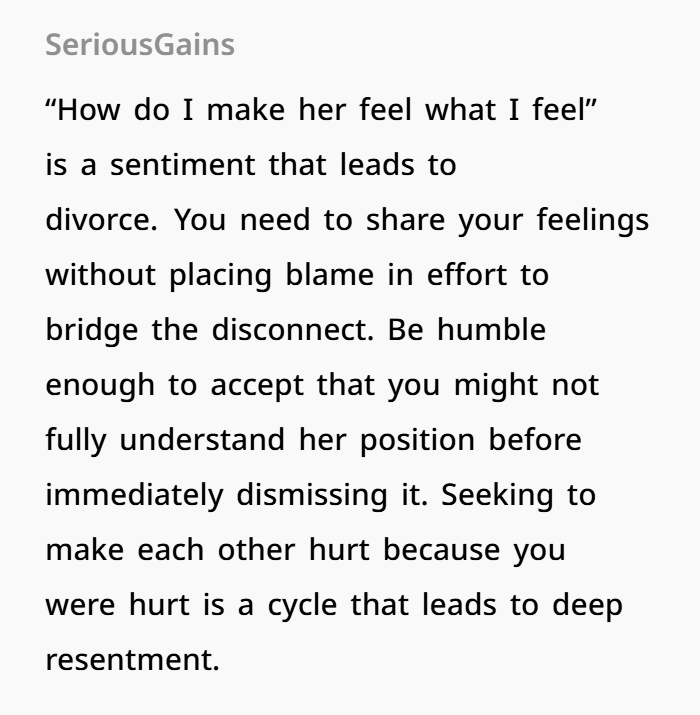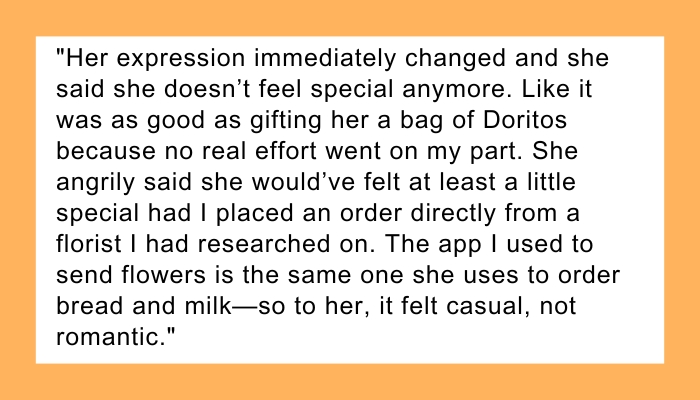“I Called My Wife Ungrateful, Cancelled Our Date And Left Her In The Car To Cry”
According to the popular New York Times bestseller The 5 Love Languages: The Secret to Love that Lasts, every person shows and feels love in different ways. Learning to understand your partner’s love language can build a stronger emotional connection and lead to a happier relationship. But if couples ignore these differences, it can lead to stress, fights, and confusion.
Recently, on the Reddit forum r/relationship_advice, a man shared a story about a fight with his wife. He had ordered flowers for her using an app, thinking it was a nice gesture. But she felt disappointed and hurt because he didn’t pick the flowers himself. This small misunderstanding grew into a big argument. The real problem? They speak different love languages.
This is a perfect example of why couples may benefit from taking a love language quiz together or even considering relationship counseling or marriage help. When partners understand each other’s way of showing love—whether it’s through gifts, words, time, touch, or acts of service—they can avoid conflict and build a more loving bond. For deeper issues, couples therapy can provide the tools needed to reconnect and grow stronger together.
Read for more info Reddit
Everyone shows love differently, so it really helps when couples get what matters to each other
But this man and his wife were not on the same page

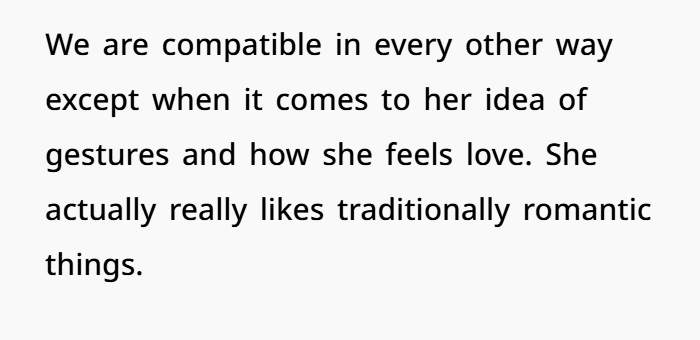
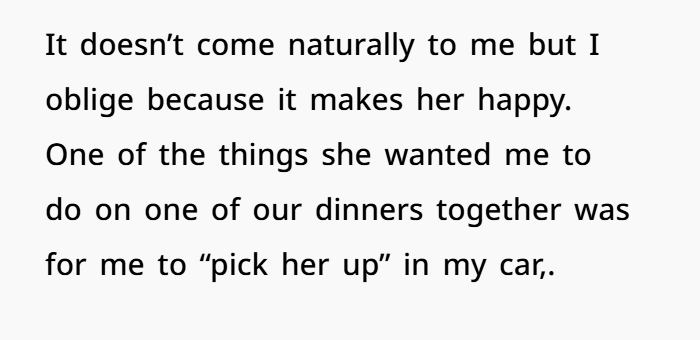
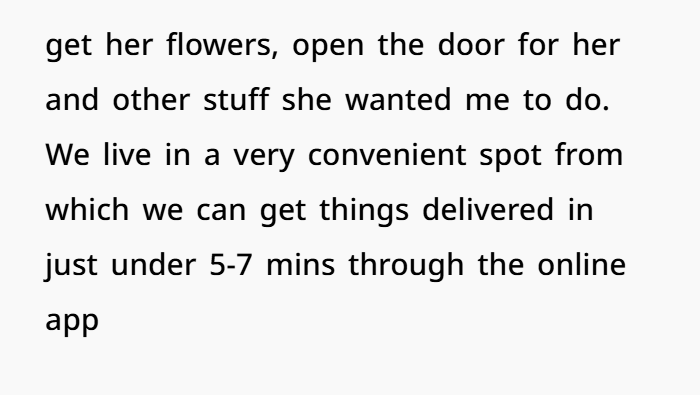
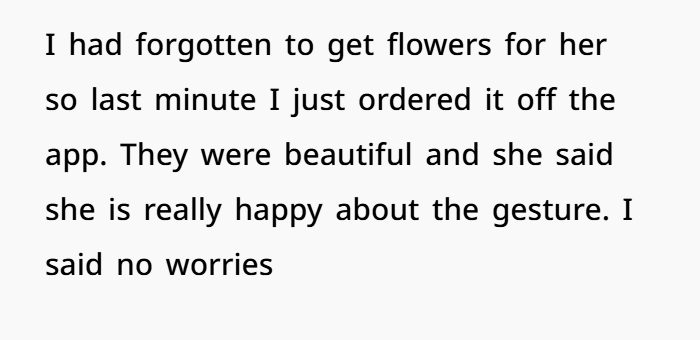
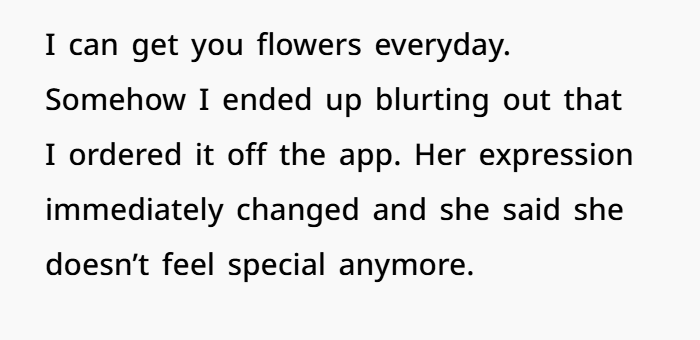
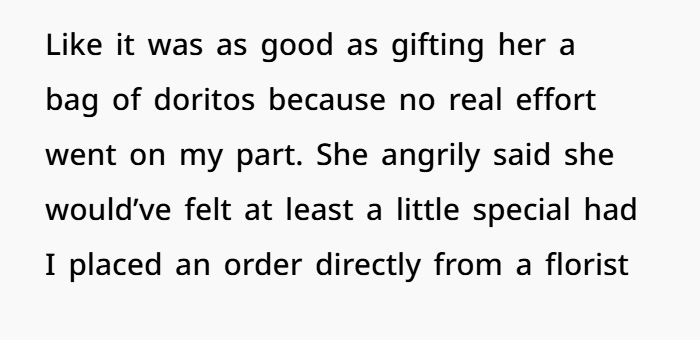
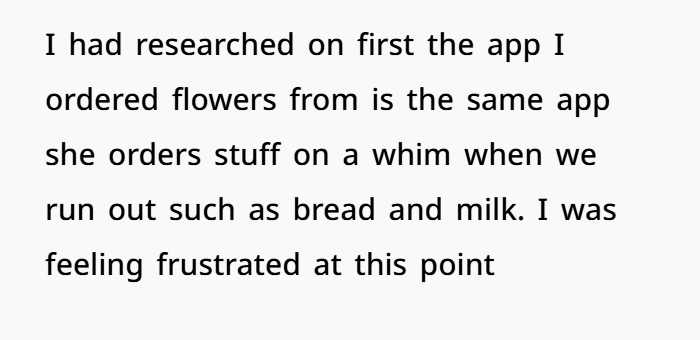
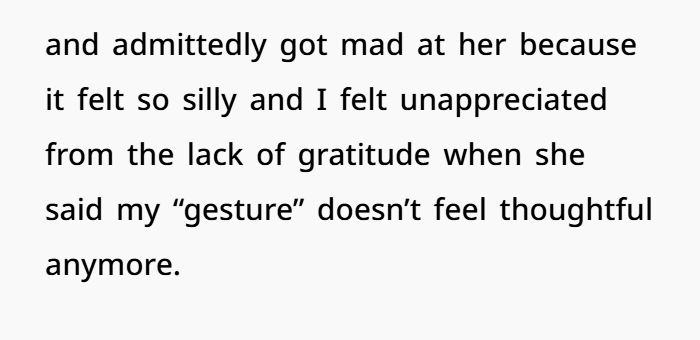
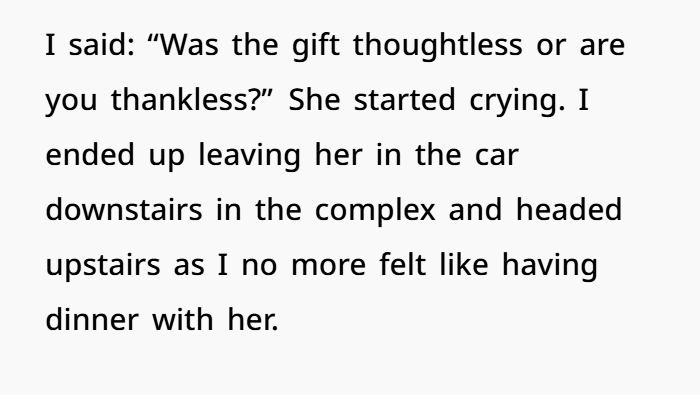
Acts of service aren’t the most popular love language
A 2022 survey by YouGov found that many Americans still don’t know about the idea of the five love languages—a popular concept used in relationship advice and couples therapy. Only 30% of people said they had heard of it. The results showed differences by age and gender: about half of women under 45 knew about the love languages, while fewer older women and men were familiar with them.
After explaining what the five love languages are, researchers asked people to rank them from most to least important. The top choice was quality time—38% of people said this was their favorite way to receive love. This was even more true for women: 41% of women under 45 and 44% of women over 45 said spending time together builds the strongest emotional intimacy.
Physical touch came in second at 24%, followed by words of affirmation (kind, loving words) at 19%. Acts of service—like doing helpful things for your partner—came fourth at 13%. The least popular was gift giving, with only 7% picking it as their top love language.
Understanding your partner’s love language can help build a more healthy relationship. If you’re not sure what yours is, try taking a love language quiz. It’s a simple step that can improve your connection, whether you’re dating, engaged, or married.
But experts would like to see couples move beyond these concepts
Dr. Shannon Sauer-Zavala, a licensed clinical psychologist and Associate Professor of Psychology at the University of Kentucky, shared her thoughts on the popular concept of love languages. While many people find them helpful, she explained that the idea has some big limitations.
Key concerns from relationship experts:
- Not backed by strong science: Research trying to prove the benefits of love languages has shown mixed results. There’s no solid evidence that matching love languages really boosts relationship satisfaction.
- Too simple for real relationships: People’s feelings and needs are complex. Breaking them into just five categories may not reflect what really goes on in a healthy relationship.
- Focuses on the method, not the meaning: Telling people to “speak” their partner’s love language may cause them to focus on the how instead of building a real emotional connection.
Still, Dr. Sauer-Zavala says love languages aren’t useless. They can help start important conversations about how we show and receive love. But she encourages couples to go deeper.
What truly makes relationships work?
According to Sauer-Zavala, the key to strong, lasting love isn’t about picking the right love language. It’s about:
- Responsiveness – Are you truly listening to your partner’s emotional needs?
- Trust in relationships – Do you both feel safe and supported?
- Effective communication – Are you open, honest, and clear when sharing feelings?
Ask yourself these questions instead:
- Am I showing love in ways that my partner understands and values?
- Could I be missing the signs when my partner is trying to show they care?
- Am I being emotionally present and supportive—not just doing gestures?
Rather than relying on love languages as a one-size-fits-all relationship fix, think about how you and your partner can strengthen your bond through open communication, mutual support, and emotional responsiveness. These are the real tools that help relationships grow—and last.
People have been sharing tons of reactions and advice
